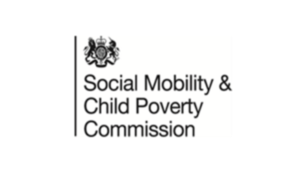Commission publishes response to the draft child poverty strategy
The Social Mobility and Child Poverty (SMCP) Commission today publishes its assessment of the UK government’s draft child poverty strategy.

The Commission’s assessment finds that 3.5 million children will be in absolute poverty - almost 5 times the number needed to meet the government’s legal obligation to end child poverty by 2020 - and that the government lacks any credible plan to get back on track.
The Commission concludes that the government’s draft child poverty strategy 2014 to 2017 is a missed opportunity and falls far short of what is needed. The Commission recognises there are some good things in the strategy - such as the extension of childcare support for low-income families and greater acknowledgement of the problem of working poverty than there was in the last strategy - but believes they will not be enough to prevent child poverty rising over the next few years, let alone to deliver the large reductions in poverty needed to meet the 2020 targets.
The Commission backs its analysis with new research that it is publishing today. This challenges the government’s claim that slippage on reducing child poverty will be corrected by getting more people into work through Universal Credit and welfare reform. The new research, carried out for the Commission by Landman Economics and the National Institute for Economic and Social Research, finds that the 2020 child poverty targets will be missed by a large margin even if the UK achieves OECD-beating employment rates.
The research estimates that even heroic assumptions about parental employment rates and earnings would still leave over 3 million children - 21% - in absolute poverty by 2020.
Indeed, the new research finds that achieving the 2020 targets within the current tax and benefit system would require parental employment rates of close to 100% combined with big increases in the working hours of families in working poverty over and above the requirements of Universal Credit.
Such employment outcomes for parents are implausible - they are far more ambitious than have ever been achieved in the United Kingdom or anywhere else in the world.
The Commission says in its report that the new research throws down a challenge to all the political parties to set out detailed plans for how their shared ambition of reducing - and ending - child poverty can be achieved.
In its report the Commission identifies problems with the government’s strategy for reducing child poverty, including:
- lack of any clear measures to assess progress with the government continuing to distance itself from statutory measures in the Child Poverty Act 2010 - which senior ministers describe as ‘discredited’ - without suggesting any alternatives. The Commission says this is not acceptable - a strategy which cannot be measured is meaningless
- absence of a step-by-step plan for meeting the targets leaving the strategy as a list of policies rather than a detailed plan that is specific about what needs to happen to jobs, wages and benefits to ensure poverty goes down
- failure to engage with independent projections that poverty is set to increase substantially such as those from the Institute for Fiscal Studies, leaving a credibility gap at the heart of the strategy
- lack of new action on in-work poverty with policies being insufficient to achieve the ambition set out in the strategy to tackle low pay and help parents progress into higher paying jobs
- limited action to get other parts of society engaged in tackling poverty with only tentative steps being taken to guide the efforts of others - such as employers - in delivering a low poverty society
- ignoring the impact of additional welfare cuts, with the expected £12 billion of cuts to the welfare budget in the next Parliament - equivalent to 13% of expenditure on working-age adults on children - making achieving the targets even more challenging: the Commission believes this is the elephant in the room in the draft strategy
Rt. Hon. Alan Milburn, the Chair of the Commission, said:
The government’s draft child poverty strategy is a missed opportunity. The farce of ministers proving unable to agree on how to measure poverty after rubbishing existing measures is particularly lamentable.
The government’s approach falls far short of what is needed to reduce, yet alone end child poverty in our country. Our new research shows that the gap between the objective of making child poverty history and the reality is becoming ever wider.
This is not just an issue for the current government. Politicians from all parties say they are committed to the 2020 targets. Willing the ends without the means today merely becomes a broken promise tomorrow.
Across the political spectrum, party leaders now need to come clean about what they plan to do to hit the targets, or what progress they can deliver if they expect to fall short.
To ensure the government’s final strategy is an effective and credible plan for tackling child poverty, the Commission urges ministers to revise its draft and develop a step-by-step plan for how the 2020 targets will be met. The Commission’s State of the Nation report published last year called for:
- action on in-work poverty including clearer cross-government strategies on low pay and on pay progression
- action on making work pay including integrating ‘passported benefits’ into Universal Credit, ensuring sufficient childcare support to make work pay and ensuring that no family who ‘does the right thing’ is in poverty
- action on the cost of living including tackling the ‘poverty premium’ faced by low income families, ensuring all families can afford the ‘basics’ and helping more families to access stable housing
- action on future fiscal consolidation including a fairer intergenerational sharing of welfare cuts, a new role for the Office for Budget Responsibility in assessing the social mobility and child poverty impacts of budgets and ensuring that cumulative impact assessments of future cuts are carried out